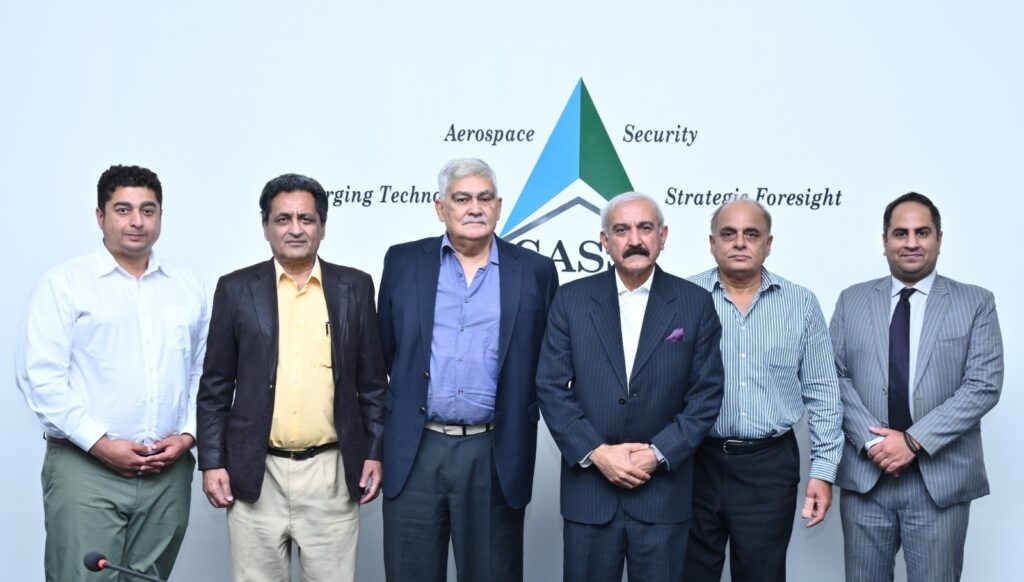
Islamabad : The Centre for Aerospace & Security Studies (CASS), Islamabad, hosted a Pre-Budget Roundtable, in collaboration with Socioeconomic Insights & Analytics (SIA), to address Pakistan’s pressing fiscal and socioeconomic challenges.
The distinguished panel of economic experts including Dr Nadeem ul Haque, Founder of Socioeconomic Insights & Analytics (SIA) and former Vice Chancellor of PIDE; Mr Humayun Iqbal Shami, President of the Pakistan Economic Forum; Mr Syed Ali Ehsan, Deputy Executive Director at the Policy Research Institute of Market Economy (PRIME); and Mr Shahid Sattar, Secretary General of the All Pakistan Textile Mills Association (APTMA), offered actionable recommendations for reforming the national budgetary framework, enhancing policy coherence, and improving execution. The roundtable was moderated by CASS Advisor on Economic Affairs, Dr Usman W. Chohan, with concluding remarks by President of CASS, Islamabad, Air Marshal Javaid Ahmed (Retd).
Dr Usman W. Chohan underscored the need for a ‘budgetary philosophy that reflects public value,’ emphasising that the budget must prioritise public interest over special interests and align with long-term development goals.
Dr Nadeem ul Haque opened the discussion with a critique of Pakistan’s current budget process, describing it as more spectacle than serious fiscal exercise. He argued that budgets should be routine, apolitical, and focused on fiscal discipline, calling for a clear separation between budgeting and policymaking. Dr Haque stressed that Pakistan lacks true fiscal autonomy, having relied on nearly 25 IMF programmes while maintaining stagnant growth at around 2%. He highlighted that public funds are citizens’ resources and must be used with care. He also pointed to key structural problems, including an erratic tax system, inefficient state-owned enterprises (SOEs), and poor debt management. Additionally, he debunked economic myths such as overreliance on the informal economy and a limited understanding of real estate development. ‘Markets must be functional, and tax systems predictable,’ he concluded.
Mr Syed Ali Ehsan advocated a principles-based approach to budgeting, grounded in balance, prudence, and accountability. He questioned assumptions about government expansion and stressed the need for a national dialogue on the appropriate size and role of the public sector. ‘We must first ask: what do we want from government, and how large should it be?’ he stated. He recommended a broad-based, stable taxation system guided by data rather than politics. Citing Parkinson’s Law, he warned that bureaucracies expand regardless of need, arguing for rightsizing to prevent inefficiency and crowding-out of the private sector.
President of CASS, Air Marshal Javaid Ahmed (Retd), concluded the roundtable by thanking participants and reiterating that sound economic governance is a strategic imperative. ‘Fixing the budget is not just about economics – it’s about national development,’ he said. ‘Economic resilience is fundamental to national security, and expert insights are essential for improving budgetary processes and outcomes.’